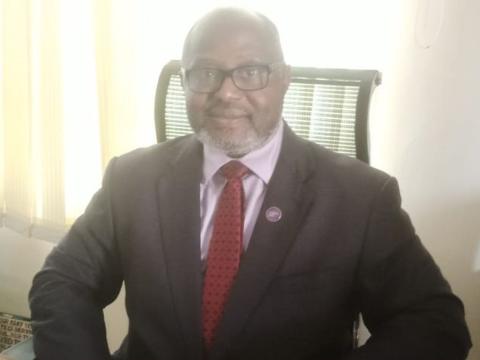By Chernor Alimamy Kamara
Bilateral budget discussions are held annually at the Ministry of Finance to allow Ministries, Departments, and Agencies (MDAs) and State Owned Enterprises (SOEs) including Local Councils to discuss and review sectoral policies as contained in the Medium-Term National Development Plan.
It is important for the process to continue as it allows key stakeholders like the Ministry of Finance, Non-State Actors (NSAs), District Budget Oversight Committees (DBOC), Civil Society Organizations (CSOs), and the Press to scrutinize MDAs and SOEs on how they utilize budget allocated to them by the finance ministry. The various MDAs and SOES are obliged to highlight key deliverables they have achieved and those they want to achieve with the budget being allocated to them.
They also narrate challenges they have encountered over time while implementing their deliverables.
This year’s budget discussion is the first time both the Deputy Ministers of Finance 1 and 2 witnessed the sessions throughout.
In an exclusive interview with Politico, Deputy Minister of Finance II Bockarie Kalokoh highlighted some of the challenges that came out clearly during the presentations such as the late disbursement of funds which he profusely apologized for and promised that come 2024 the ministry will ensure the budget is allocated on time for the execution of the Big Five Agenda of President Julius Maada Bio.
He cited the just concluded multi-tier elections in the country as the major challenge surrounding the late disbursement of funds wherein the Government of Sierra Leone expended close to $100 million dollars in financing the election, monies that he said were not budgeted for.
He highlighted the input made by NSAs, DBOCs, and the Press which he referred to as key in the process. He said the budget discussions have been very enlightening to him as he was able to see a lot of gaps as well as challenges that needed to be addressed at the next budget hearing.
Kalokoh said he learned that the majority of the MDAs surpassed the Ceiling that was given to them even though it was earlier stated that they should not carry- forward their programmes to start up a new one. However he said the Principal Finance Officer will continue to encourage MDAs to be reasonable and find ways to source revenue due to the burden that is upon the finance ministry.
He emphasized that they will not leave this year’s budget approval with the Director of Budget anymore, saying they do respect the team’s professionalism, but as political heads, they want to ensure it aligns with the priorities they want to achieve as a government.
Deputy Finance Minister II said the Ministry of Agriculture needs about $250 million dollars to execute a capital budget to pursue the President’s “Feed Salone” project as part of the Big Five agenda promised to the people of this country which is a huge amount of money.
He said they are preparing the space for private sector investment and also sourcing for funding to see how they can achieve their targets, saying funding will not always be forthcoming from donor partners as they intend the country to be self-reliant by 2030.
He explained President Bio’s determination for Sierra Leone to become a middle-income country “whereby we are able to fund ourselves properly without seeking any funding from any donor partner.”
David Joseph Alieu, a Civil Society Advocate from the Network on Climate Change and Environment who also doubles as a member of Reproductive Maternal Child and New Health Coalition, described this year’s budget discussions as entertaining and encouraging as it was opened and allowed other players to participate in the process which is a key achievement for the nation.
He said the number is small in terms of stakeholders’ participation and urged the Ministry of Finance to bring on board more CSOs, and media to provide a more spacious environment that can accommodate more people.
Sheik Tejan-Sie from DBOC Bombali District said he saw so many novelties in this year’s budget discussion in terms of presentations where the Presenters were mostly Permanent Secretaries, with Ministers and their Deputies also witnessing the presentations.
He said budget discussion is a necessity that can help the grassroots to know exactly how the national economy is being directed with DBOCs having the opportunity to make their input in the budget.
He recommended an increase in time in presenting the budget- suggesting a return to the usual 21 days or a maximum of one month for them to be able to submit their recommendations to the people they are representing.
The Fiscal Year 2024 budget discussions focus on Domestic Revenue Mobilization efforts by MDAs to finance their budget proposals, including other innovative sources of finance for the state.
Copyright © 2023 Politico (25/10/23)








